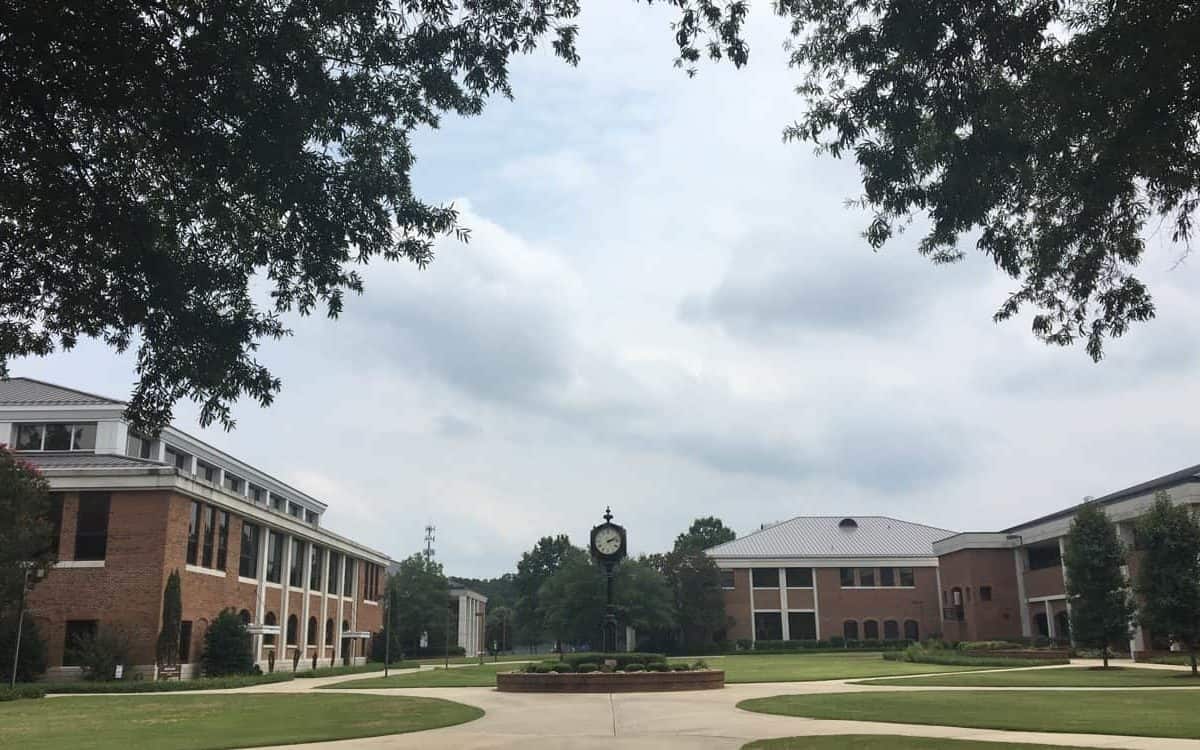

Last month, Hurricane Florence ravaged much of eastern North Carolina, including Goldsboro — home to Wayne Community College. But clinical counselor Melanie Jenkins was dealing with a different storm.
“In the past two weeks, in addition to [Florence], I’ve had three students that have suicidal ideations,” Jenkins said. “One ended up in-patient in ICU with an attempted overdose. One I was able to work with, and they are able to maintain on an outpatient basis. And sadly I got the news just a few days ago that one completed suicide.”
“That’s at my campus y’all. Three in two weeks. That’s the norm,” said Jenkins.
Jenkins was presenting on “Managing Student Health Issues” at the NC Community Colleges System Conference in Raleigh on Monday, Oct. 8. Using perspective gained from her experiences at Wayne Community College, Jenkins shared best practices for mental health prevention, response, and intervention. She said it starts with having trained counselors right on campus.
“If we can have clinical counselors in place at our community colleges, then you can get on the phone and you can call and you can say, ‘Hey, I’ve got a situation. I need some support,'” Jenkins explained, adding that when students have academic needs, they are sent to tutoring. “So why not send them for assistance regarding their mental health needs?”
Jenkins also explained that this means everyone needs to be on board in recognizing student mental health needs.
“Through prevention, it’s about providing outreach as well as educating your campus — your staff and faculty. We need to have these discussions more as a campus at large,” Jenkins said.
In the end, Jenkins explained, the benefit isn’t just to the students’ health. It works in the community college’s favor since healthy students mean higher completion rates.
“If we are able to help them through these difficult times, they get to stay in school. They get to complete their degrees,” Jenkins said. “We get student retention and completion rates, and we may save a life or two along the way.”
She encouraged instructors to pay attention to their students’ behavior and to not shy away from acknowledging that something may be wrong. “When a student shows up in class, you don’t have to be a mental health expert to show care and concern,” Jenkins said, sharing her tips to acknowledge a student’s needs, diffuse the student’s stress, and refer the student to appropriate services.
“If a student shows up in class and you can tell that they’re tearful or just not quite right, it’s okay to say ‘I’m really sorry that you’re having a bad day. We care about you at Wayne Community College and we have resources for you.'” In Jenkins’ experience, usually all it takes is a few e-mail exchanges or a phone call; once the student is made aware of the on-campus resources available to them, they use them.
“When you reach out and you offer, they show up,” Jenkins said, adding that many of her colleagues will personally walk a student to her office.
Too close to home
For Jenkins, the topic of mental health on community college campuses is raw.
Three and a half years ago, there was a shooting on campus at Wayne Community College. It resulted in the fatality of one of her colleagues. The shooter was a former student and work-study employee.
“My co-worker and friend died that day,” Jenkins said of the shooting that took place on the third floor of the same building she worked in. “I never thought that could happen to us, but it did, and it could happen to you.”
As Jenkins shared the story of April 13, 2015, her colleagues and co-presenters Joanna Morrisette and Gene Smith were visibly emotional.
While the building was on lockdown, Jenkins hid in Morrisette’s office under a desk.
“It’s like a movie that you can’t make up,” said Morrisette, associate vice president at Wayne Community College. “We spent hours in my office. We spent hours strategizing what to do.”
Though the team had prepared for lockdown situations, Morrisette remains shaken by the memory of the SWAT team coming through her office door with guns pointed.
“I had a lot of people talk to me about the trauma of the lockdown,” said Smith, the college’s vice president.
“It violated our sense of safety,” added Jenkins. “It shook us to our core. We were broken, and we had to find our resilience. We had to have more courageous conversations.”
In response, the college upgraded its lockdown software to a $65,000 system that allows police to hit a button and lock every building. From the tragedy also came a continued focus on the behavior intervention team, which Jenkins encouraged administrators to strongly consider.
“At our college, we do have a behavioral intervention team and we have the slogan ‘see something, say something; hear something, say something; when in doubt, reach out.’ These are all good practices for risk management,” Jenkins said, explaining that it was the Virginia Tech shooting that had already gotten the college administration’s attention in reporting concerning suspicious behavior.
“This is really about protecting your people, your institution, your students, staff, and faculty. So it’s important work and I think it’s necessary work,” said Jenkins.
As in the case of most school shootings, there was “leakage.” The gunman at Wayne Community College had a grievance in that he lost his work-study job. He demonstrated behavior changes. He added new tattoos. Jenkins said that leakage also includes suspicious posts on social media or an “off” comment to a friend or a family member.
“I encourage each of you to trust your gut. We actually have a physiological response to things that are unsettling,” Jenkins said. “And I say to each of you: trust that.”
Moving mental health forward
For Jenkins, it is undeniable that mental health challenges are facing not only students but also the entire community college system, and that’s why the need for funding for embedded campus counselors can’t be taken lightly.
“I’m here to advocate to our administrators and our legislators: let’s get embedded counselors,” Jenkins said. “Let’s get funding for these things that can truly make a difference.”
According to Jenkins, students are coming in more stressed than ever before without the skill set to navigate college and life. “I know the struggle, the hardship that our students are faced with,” Jenkins said. “And y’all — it’s not just because my girlfriend or boyfriend broke up with me. It’s significant life stressors.”
She said the research and trends show that student mental health issues are a growing problem. “We do have a crisis,” Jenkins said. “But the research also supports that if we have clinical services in place, we are really supporting our students.”
“We’re doing important work. We’re allowing folks to build tool boxes, to have tools to navigate the hardships in their life, not just while they’re in school,” Jenkins said. “But they’re going to go into our communities, and they’re going to take those skills where they live, where they work, where they play — and don’t we all benefit from that?”


